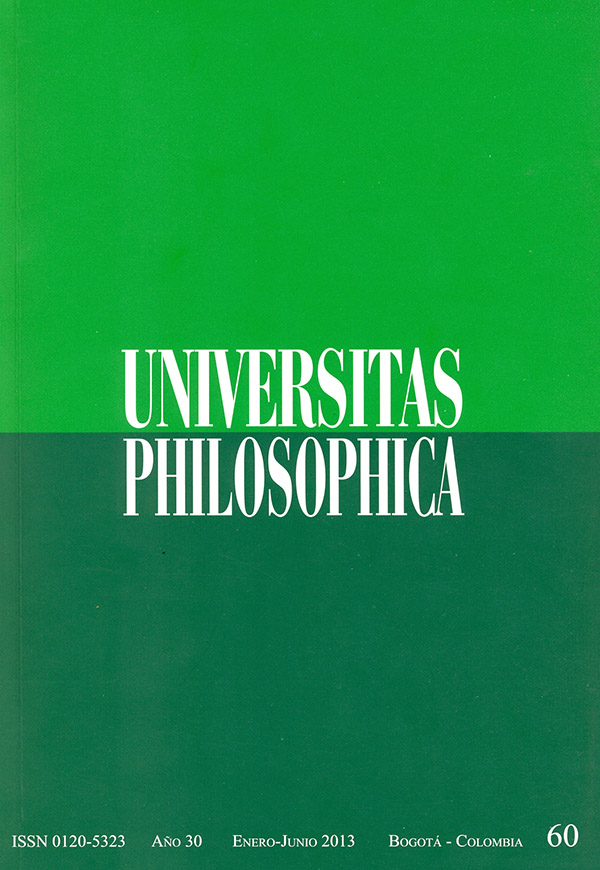Resumen
Este trabajo articula dos tesis: una socrática y una platónica; y muestra cómo una es consecuencia de la otra. La tesis socrática es llamada el principio de la prioridad de la definición; la platónica es la teoría de la reminiscencia. La articulación entre ambas tesis es posible gracias a la paradoja del Menón, que hace una crítica a la primera tesis, pero que es resuelta con la segunda. La consecuencia de esta articulación es una nueva interpretación de la teoría de la reminiscencia como una teoría de adquisición de conocimiento que depende, fundamentalmente, de la distinción entre conocimiento y opinión verdadera. Para concluir, se presenta una interpretación de la distinción conocimiento/opinión verdadera –pero no a la manera tradicional, distinguiendo proposiciones una por una y de manera atómica–, sino como grandes bloques o cadenas de proposiciones que conforman conocimiento a través del razonamiento explicativo (aitías logismós).
Esta revista científica se encuentra registrada bajo la licencia Creative Commons Reconocimiento 4.0 Internacional. Por lo tanto, esta obra se puede reproducir, distribuir y comunicar públicamente en formato digital, siempre que se reconozca el nombre de los autores y a la Pontificia Universidad Javeriana. Se permite citar, adaptar, transformar, autoarchivar, republicar y crear a partir del material, para cualquier finalidad (incluso comercial), siempre que se reconozca adecuadamente la autoría, se proporcione un enlace a la obra original y se indique si se han realizado cambios. La Pontificia Universidad Javeriana no retiene los derechos sobre las obras publicadas y los contenidos son responsabilidad exclusiva de los autores, quienes conservan sus derechos morales, intelectuales, de privacidad y publicidad.
El aval sobre la intervención de la obra (revisión, corrección de estilo, traducción, diagramación) y su posterior divulgación se otorga mediante una licencia de uso y no a través de una cesión de derechos, lo que representa que la revista y la Pontificia Universidad Javeriana se eximen de cualquier responsabilidad que se pueda derivar de una mala práctica ética por parte de los autores. En consecuencia de la protección brindada por la licencia de uso, la revista no se encuentra en la obligación de publicar retractaciones o modificar la información ya publicada, a no ser que la errata surja del proceso de gestión editorial. La publicación de contenidos en esta revista no representa regalías para los contribuyentes.


